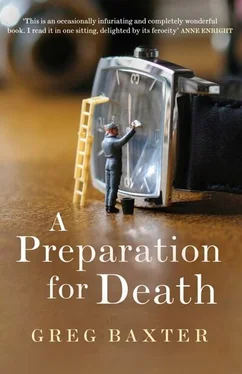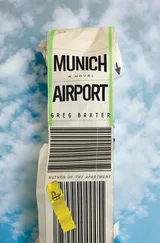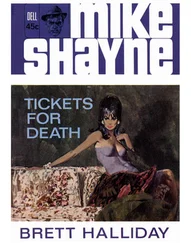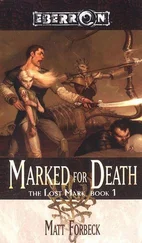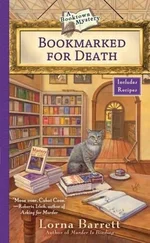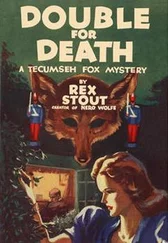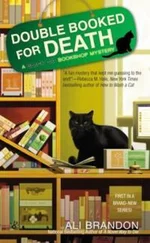After three years of working as a journalist, my life had become a junkyard of comforts. It must be true that to many — to all but a few — this junkyard is the meaning of life. Otherwise the fabric would collapse. If there were not people whose whole life was an Audi, or toilet-roll holders, or a television, or fancy lampshades, or an expensive birthday party for their four-year-old, civilization would end today, this minute.
My pint was finished. The black man was flirting with the German girls. My phone flashed again and I took the call. The news editor asked how the conference had gone. I said it had gone well. Anything front page? Oh, definitely. The rain was the same. I had no umbrella and no waterproof jacket, so the walk to the quays was going to be wet, and for the rest of the afternoon I’d be sitting in an uncomfortable puddle at my desk.
I put the books back into my bag and threw the bag over my shoulder — it seemed heavier now after two pints. The black guy gave me a nod. Earlier, the white-haired man from the back had walked out, rapping his knuckle on the bar as he went. Perhaps they had held a conversation earlier, or maybe they knew each other from the Westbury. Anyway, I had the feeling they didn’t expect to see each other again. The black man told the white-haired man to take it easy. The white-haired man told him to do the same. The black guy said, Ain’t nothing else to do.
I stepped out and stood in the rain. Why hurry when it would not make a difference? No matter what I did, I was going to get wet.
2. That Lovely Season Now Expired
In the summer of 2000, when I was twenty-five and unfathomable to myself, I drove with a friend, Brent Benoit, from Baton Rouge to the Sewanee Writers’ Conference at the University of the South, in Tennessee, where I hoped to announce myself to the world of Southern letters.
Brent came by my house at seven in the morning. He had rented a lollipop-red Jeep Cherokee while his truck was in the shop. It took me half an hour to get out of the house. I had been out the night before and run into some girlfriends of friends. They were all beautiful, and I was only beginning to understand the dangers of being around beautiful women when you are so full of yourself. I was hungover, and so was Brent, and when we set off we were both green and quiet. Because it was July, it was already too hot to think, and we were good enough friends not to need chit-chat.
Brent and I were studying in the writing programme at Louisiana State University. I was getting along nicely— a few publications, some awards — and at that time Brent was the only other writer at LSU who I felt had a chance. He was a big fan of Hemingway and Faulkner, and he wrote like a great black river splashing out of its banks. He couldn’t spell, and he had no idea what a comma was, but he could write. We had sort of pledged allegiance to each other — we believed we were on similar ascensions — and although we didn’t say it, we saw the trip as a pilgrimage.
We bought a loaf of bread, sliced cheese, ham, mayonnaise, a carton of cigarettes, some Kodiak chewing tobacco, and a few cases of beer. We were going to drive the whole way drunk. We had no interest in contemplative dialogues on Art. We wanted nothing more than the raw mayhem of existence. The only difference between us was that his mayhem took the form of constant awe and wonder; mine was venom.
Brent wasn’t one of those Southern writers who glorify stereotypes and gaze at the navel of place-ness. But he was comfortable in the landscape, and his characters were very much of the places he wrote about. I, meanwhile, was fundamentally unhappy. Sometimes when I remember the unhappiness I felt at twenty-five, I can’t imagine why I didn’t kill myself. I sensed that I was an outcast everywhere. My characters were all exiles, and I hated them. In writing, Brent became fulfilled. I just felt eviscerated.
By the time we crossed into Mississippi, we were awake and drunk and listening to music. We sank heavily into the landscape, the crumbling interstates, the dense piney highwaysides to Biloxi that broke expansively at exits, which were all the same, and full of romantic gloominess — grim hotels, food for gluttons, shopping for the poor. We drove it all with the windows down. In Meridian, Mississippi, we passed a chicken warehouse that made me never want to eat a chicken again — a hangar-like structure without walls, right on the side of the interstate, with giant fans propelling a breeze through a hundred shelves of stuffed-full cages. Although the chickens were too cramped to move, they struggled nevertheless, and white feathers floated over the town. In Alabama, we bought some net-backed hats and put on some fake redneck teeth Brent had bought back home, and were given threatening stares at a truck stop.
The easiest way to drive to Sewanee, if you come from the west, is to overshoot it by a hundred miles on the interstate, get to Chattanooga, and take an easy two-lane highway back. But we were sick of interstates and running very late, so we got off and headed straight north, out of Alabama, through back roads of mountains and the Tennessee River valley. I had assumed it would be a lot like the set of Deliverance , that I would spot children with eyes in their nostrils and gills in their ankles. But the little towns we passed were just like everywhere else we’d passed: poor, boring. The scenery was nice but the mountains were really just hills, nothing special.
On the long straightaways I got the truck up to a hundred, where it rose dangerously high off the surface of the road and swayed about like a balloon, and going up the switchback roads I had it fishtailing. When I swerved to avoid an eighteen-wheeler coming down the mountain, nearly causing the Jeep to tumble into the woody drop-off beside the road like something from a movie, Brent told me to slow down or he was going to kill me. He was green and I believed him. But we were getting close to Sewanee, and I felt my whole life wrenched forward by the force of my fate. I sensed that I had lifelong friends to meet, and great books ahead of me. I could feel the presence of Barry Hannah, the only living writer I considered a hero, as though the trees and rocks and little streams were whispering clamorously about him.
We arrived late, and had missed the opening reading by the playwright Romulus Linney. We parked at the main reading venue, a small banquet hall at the edge of campus. A group of white-haired and weathered figures were standing around looking like Southern writers. If you’ve ever seen a group of them together, you know what I mean. The closest I can come to describing it accurately is a highbrow and slightly effeminate fishing trip. We asked them where the restaurant was and got an incredulous stare. One asked, Have you only just arrived? We told him we had driven from Louisiana that morning. We were beat, and we had hauled ass. Instead of giving us directions, he told us we had wasted our whole trip missing Linney and might as well go home. We waited a moment, until we realized he wasn’t joking and that he wasn’t going to tell us where the restaurant was.
We found it ourselves — it was a two-minute drive around the corner — but as we rushed in, smelling like thirteen hours of driving drunk, everyone was getting up and all the food was being cleared. There was no sign of Barry Hannah, who had just gone through chemotherapy for lymphoma and, I would learn, ate nothing but pink medicinal shakes through a straw. (I had met him a year earlier, before the chemotherapy, in Baton Rouge, when he sat down with some of the students at LSU to talk about his writing.) We got something to eat only because Dave Smith, a regular Sewanee conference faculty member, convinced the staff to leave some scraps out for us. Dave was my advisor at LSU and my boss at the Southern Review , and very much a father figure, whom I admired because of his own venom and followed like a disciple. This meant, of course, that our future held the inevitability of disappointment, of neither of us measuring up, which is how all my relationships, every one of them, even with Brent, have ended since that trip to Tennessee.
Читать дальше
